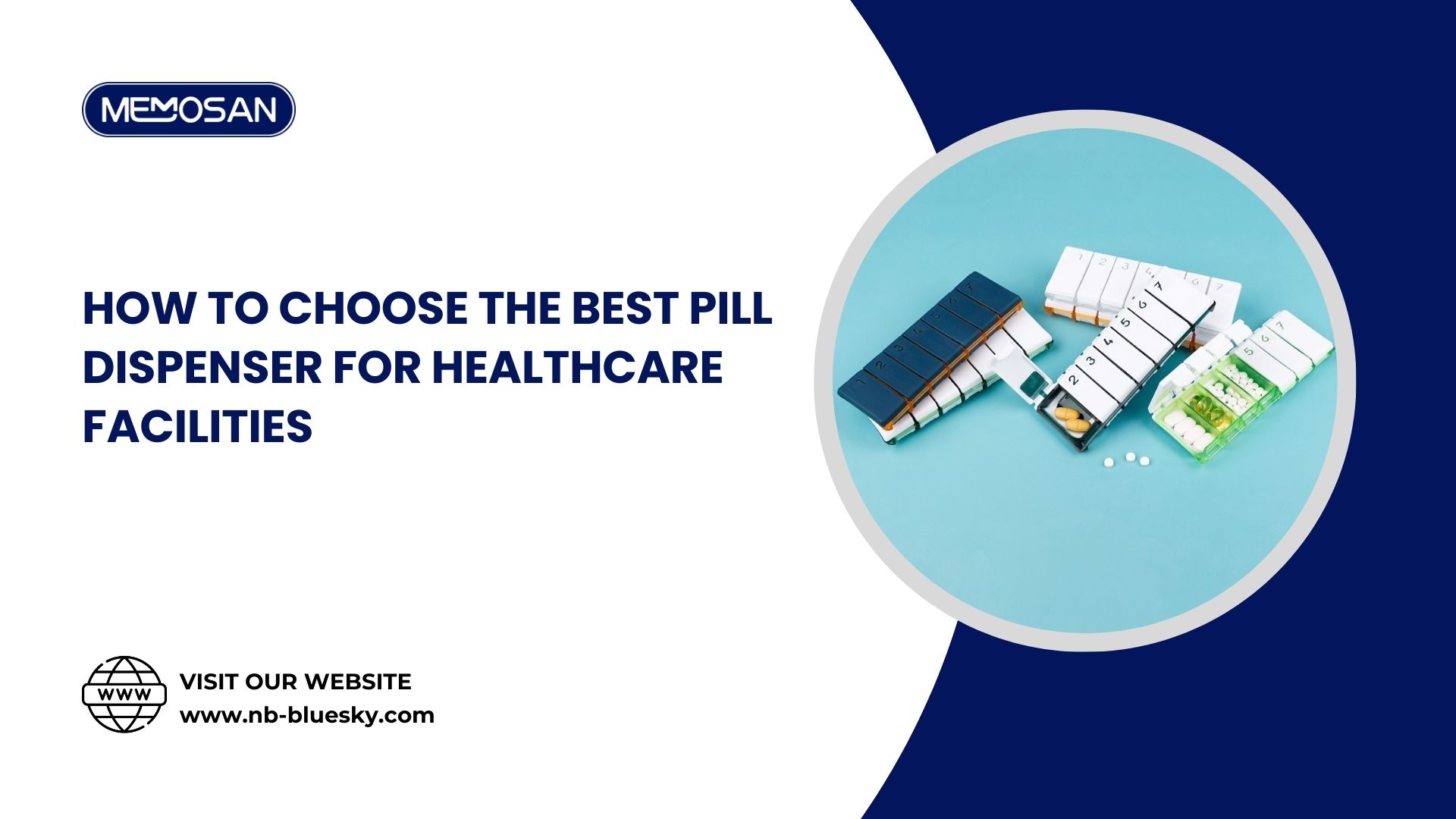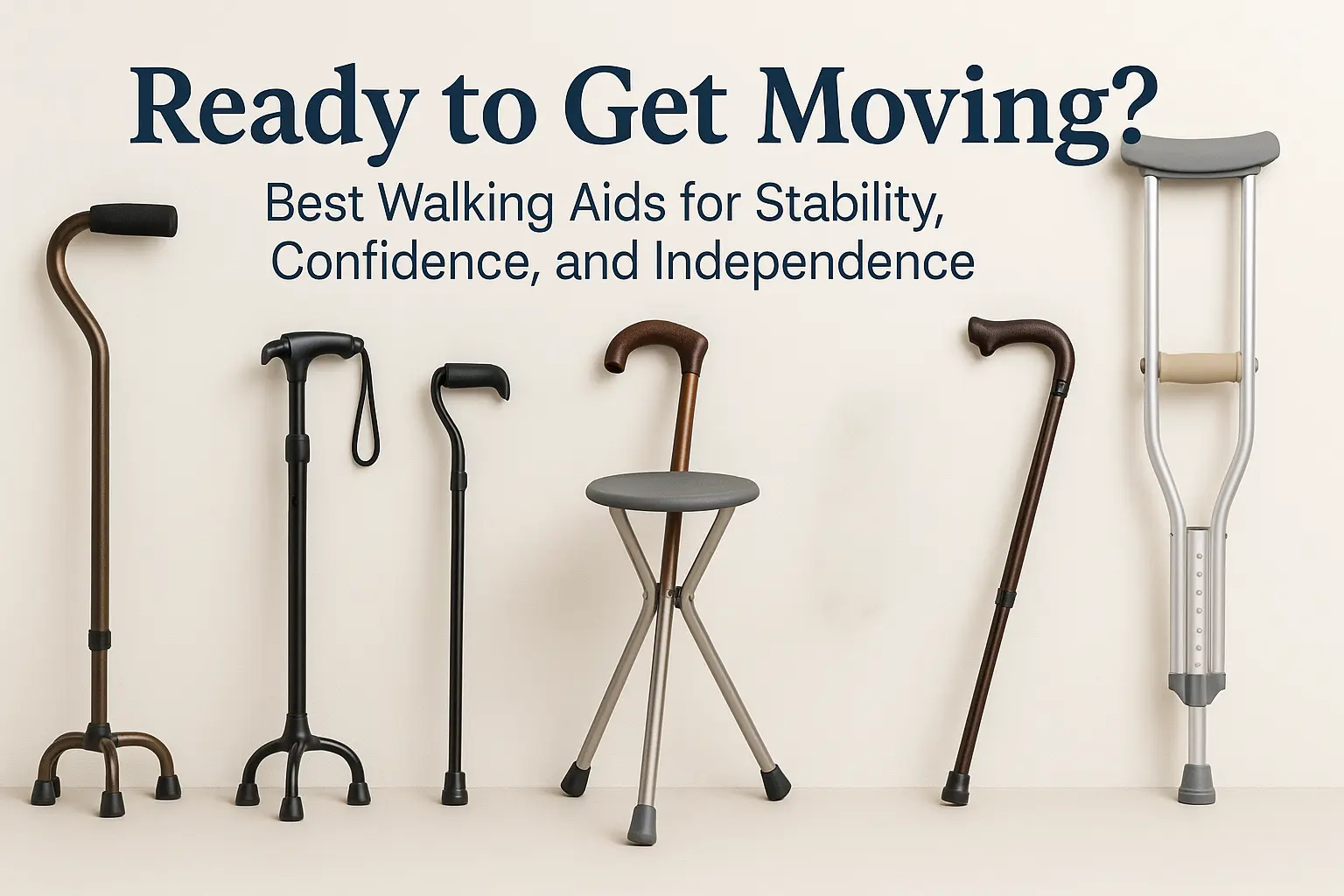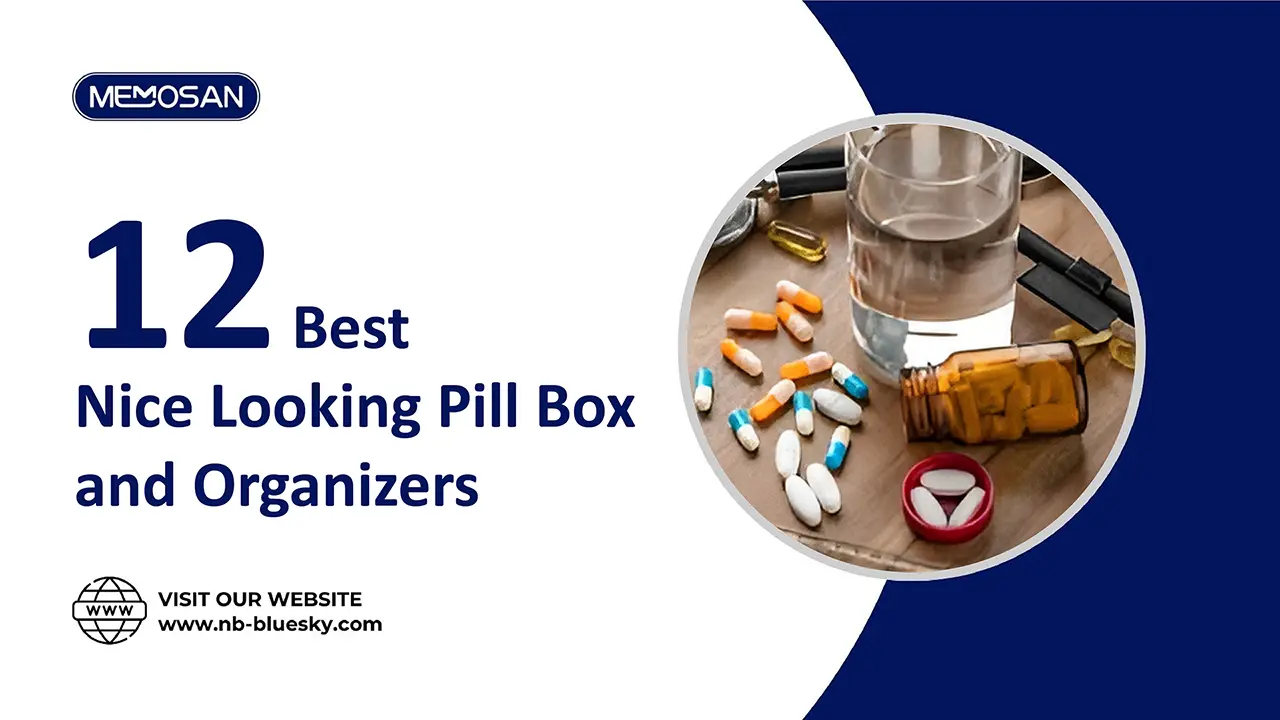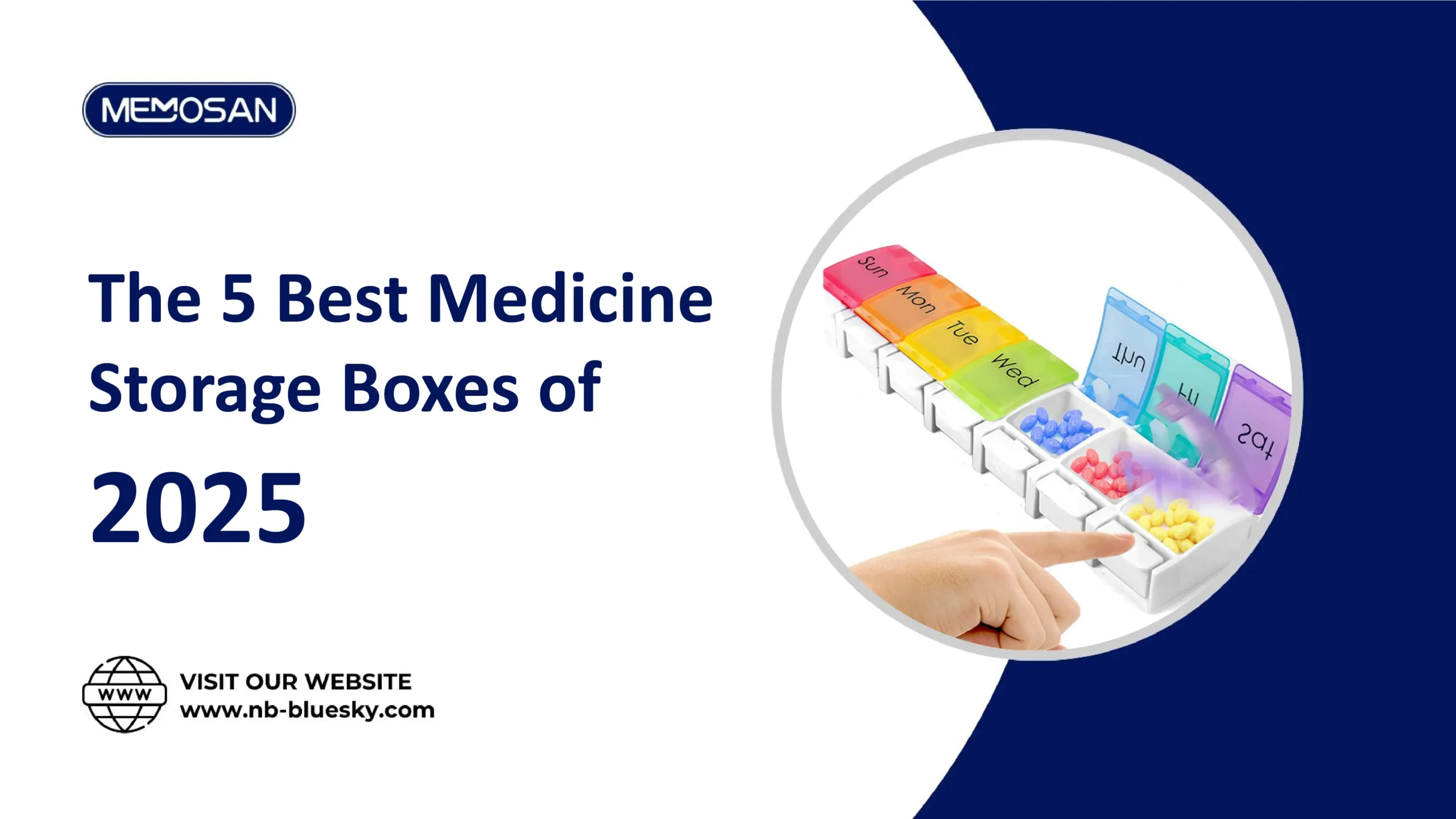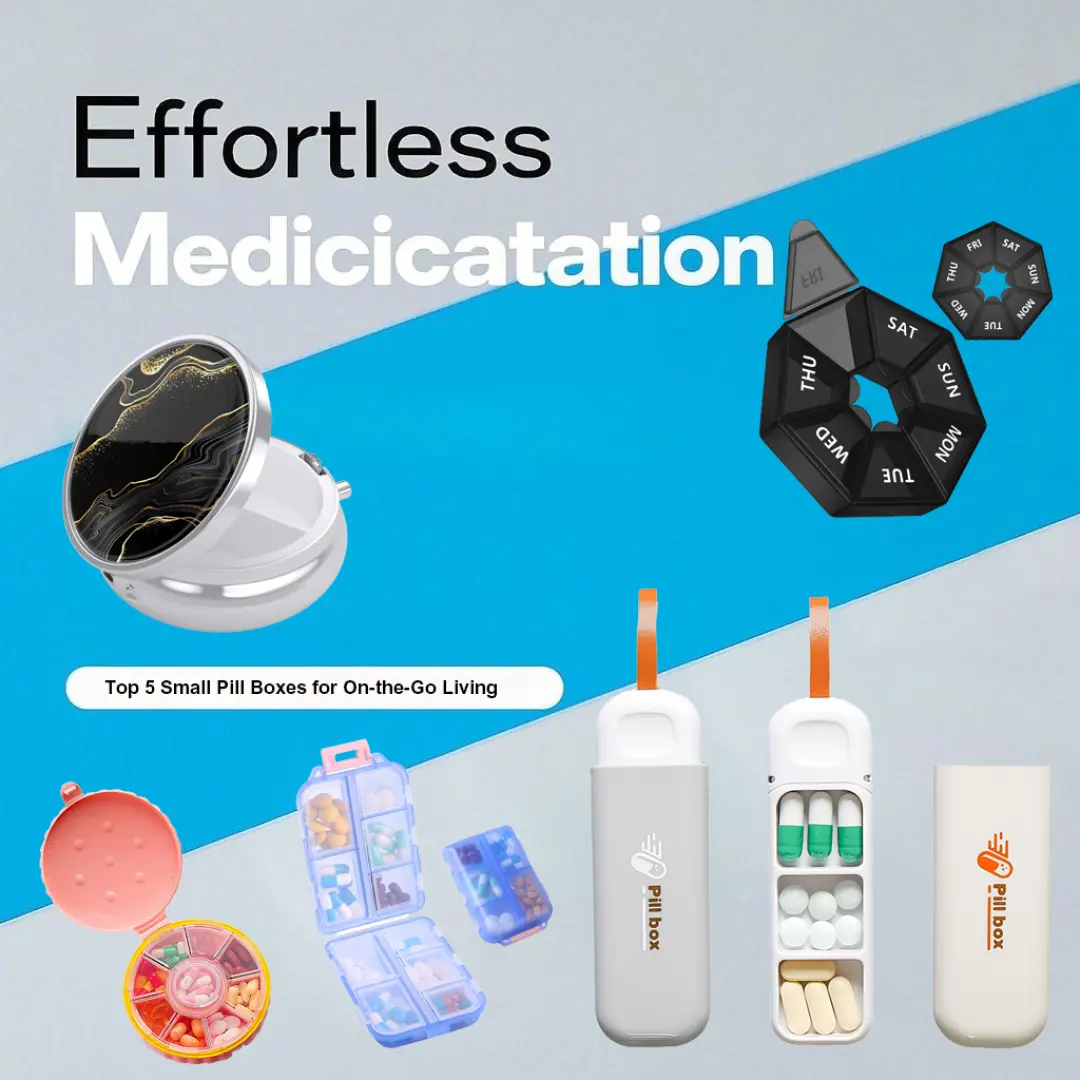Medication administration is essential for patient safety and treatment effectiveness in healthcare settings. Selecting the best pill dispenser can substantially facilitate this process, enhancing patient results, minimizing errors, and streamlining medication scheduling. This article discusses the key elements to consider when choosing a pill dispenser for medical environments, including size, functionality, and safety features.
Introduction
In healthcare facilities, precision in administering medications is paramount. A dependable pill dispenser can differentiate effective therapy from medication mishandling. With a carefully selected dispenser, healthcare professionals may guarantee patient safety, optimize operations, and lower drug errors. This article will discuss how to pick the best pill dispenser for medical environments and what characteristics set one model apart.
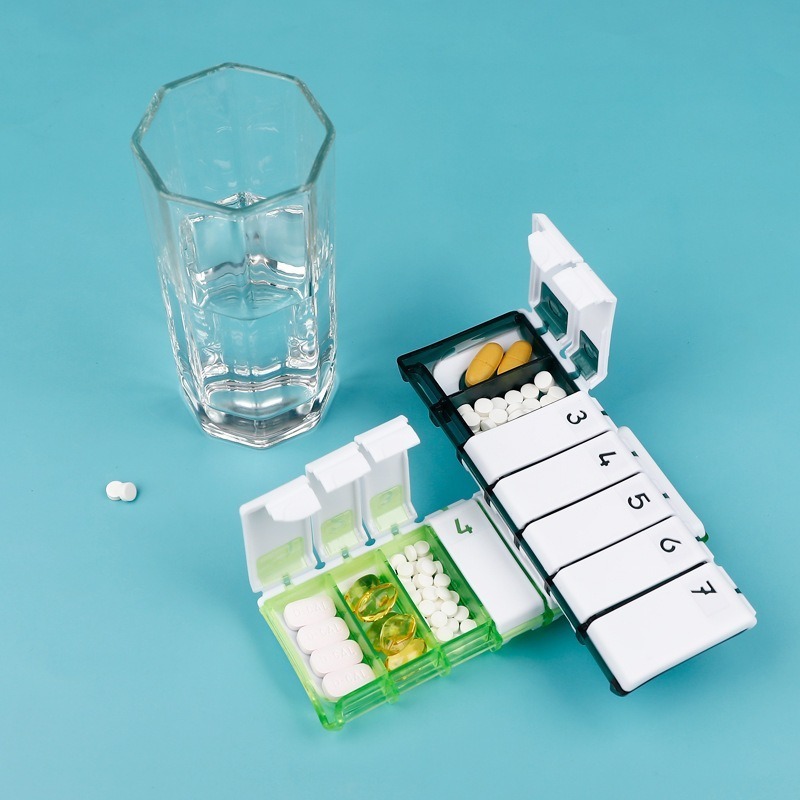
Understanding the Role of Pill Dispensers in Healthcare Facilities
Pill dispensers are critical in organizing medications, especially in facilities that handle multiple patients with varying prescriptions. From simple pill boxes to advanced electronic dispensers, these tools help organize pills by dosage and time, ensuring patients receive their medications at the proper intervals. The right dispenser can increase efficiency, prevent missed doses, and make medication management easier for healthcare staff.
Key Factors to Consider When Choosing the Best Pill Dispenser
Healthcare facilities must evaluate several aspects while choosing the ideal pill dispenser to guarantee safety, effectiveness, and user-friendliness. Here are some crucial things to think about:
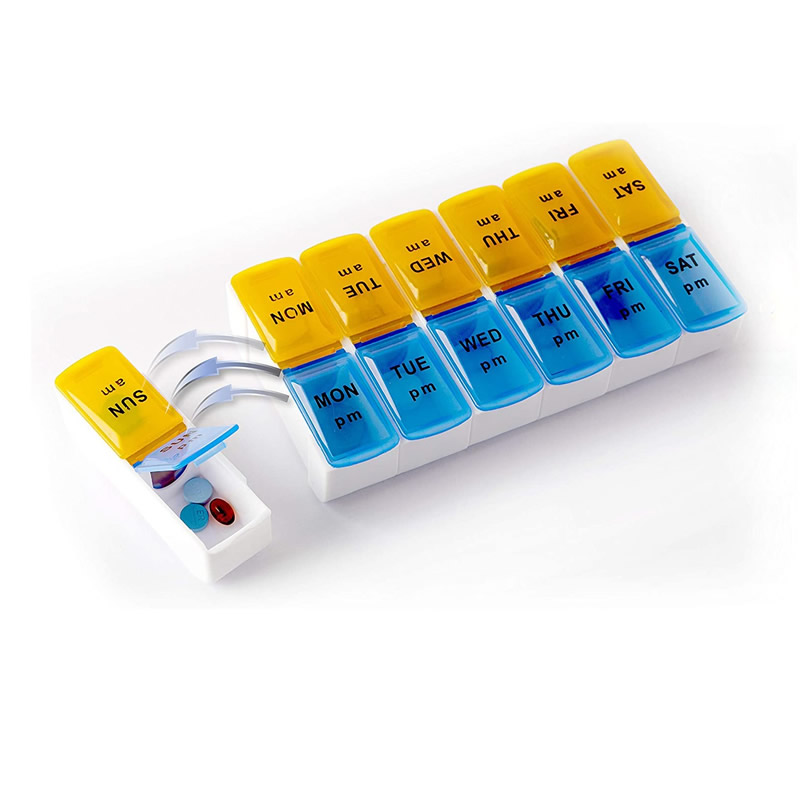
Capacity and Size: To efficiently arrange different doses, select dispensers with lots of room and compartments, especially for high-volume situations or complicated medicine regimens.
Ease of Use: To expedite drug distribution and lower errors, choose accessible models for medical personnel, such as those with color-coded compartments or clear labels.
Safety Features: To improve patient safety and avoid missed doses or illegal access, prioritize dispensers with safety features like child-proof locks, tamper resistance, or alarms.
Material Quality and Durability: Choose dispensers of medical-grade materials like polypropylene for long-lasting use and strong resistance to repeated cleaning and sanitization.
Patient Compliance: To increase adherence and, where appropriate, facilitate self-care, consider measures that promote patient independence, such as large-print labeling or auditory reminders.
Maintenance and Cleaning: Seek models with detachable parts or surfaces that are simple to clean. Antimicrobial or antibacterial materials can improve hygiene, which is essential in medical environments.
Cost-Effectiveness: Balance vital features and your budget. Basic pill boxes are affordable, but more sophisticated models with extra features can compensate for their greater cost by increasing efficiency and lowering errors.
Comparing Popular Pill Dispenser Models for Healthcare Facilities
To assist healthcare professionals in making wise decisions, below are a few well-known models and their attributes:
Weekly Pill Organizer Boxes: These are straightforward, reasonably priced, and valuable for one prescription or easy routines.
Multi-Compartment Pill Organizers: Provide additional divisions for intricate scheduling, enabling hourly or daily management.
Digital Pill Dispensers: Digital pill dispensers are perfect for people with high needs because they come with locking mechanisms, alarms, and reminders. For better adherence, some models incorporate mobile apps offering extra tracking and reminders.
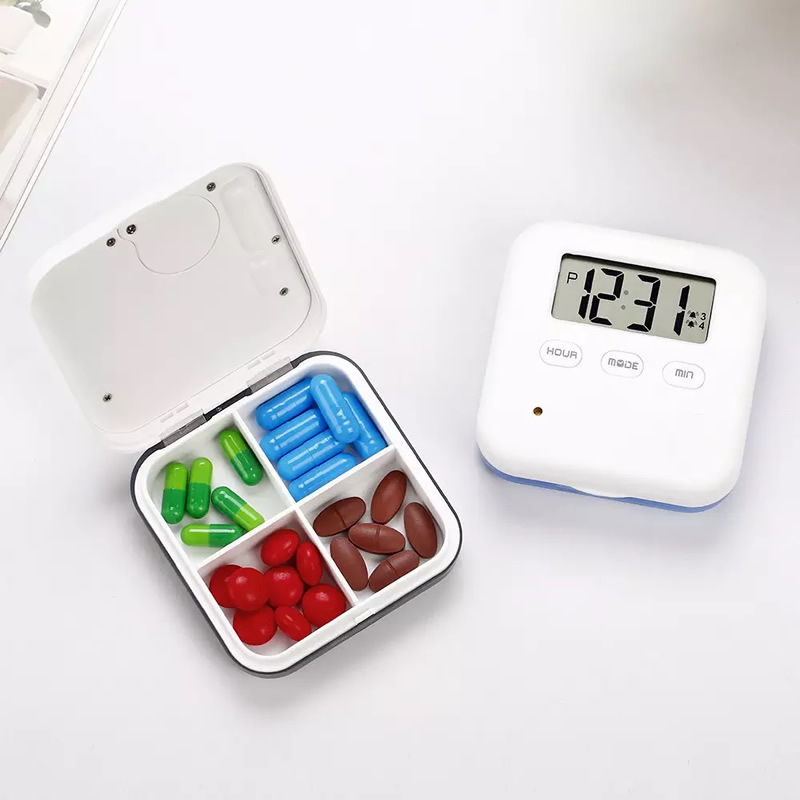
Automated Pill Dispensers: The most sophisticated choice is automated pill dispensers, which have systems that provide precise dosages at predetermined intervals. Despite being more costly, they significantly lower the possibility of mistakes and enhance medication compliance, making them perfect for critical care units.
Each of these models has its unique benefits and downsides. By considering the needs of the staff and patients, facilities can find the model that best fits their environment.
Benefits of Using the Best Pill Dispenser
Healthcare institutions can improve productivity, safety, and accuracy by choosing the best pill dispenser, which offers several significant advantages. A few of the main benefits are as follows:
Increased Accuracy: Pre-measured doses are arranged and dispensed, significantly lowering the possibility of dosage errors.
Time Savings: Simplifies the procedure, giving medical personnel more time to concentrate on other essential duties.
Improved Patient Safety: Lowers the possibility of overdosing or missing doses, which is essential for patients on complicated drug schedules.
Compliance Support: Enhances adherence to recommended schedules by ensuring that drugs are taken on time.
Decreased Human Error: Correct timing and organization features reduce errors’ probability.
Notification and Alarm Features: Offers an additional degree of assurance by warning employees if doses are missed.
Simple Inventory Management: Lowers the chance of running out of medication by keeping track of stock levels.
Final Summary
Selecting the best pill dispenser for a healthcare facility involves careful consideration of capacity, safety features, automation options, and compliance with healthcare standards. By prioritizing these factors, facilities can improve medication management, ensure patient safety, and reduce caregiver workload. The ideal pill dispenser can be a powerful tool in promoting accurate, timely, and efficient medication distribution, ultimately enhancing the quality of patient care.
FAQs: Best Pill Dispenser
What is the best pill dispenser for extensive healthcare facilities?
A high-capacity electronic or smart dispenser like MedMinder is often the best choice for extensive healthcare facilities. It allows remote monitoring and can handle multiple doses per patient.
How do electronic pill dispensers work?
Electronic pill dispensers work by pre-sorting pills into compartments with scheduled alarms to remind caregivers or patients when it’s time to take a dose, reducing the chance of missed doses.
Why are locking mechanisms important in pill dispensers?
Locking mechanisms prevent unauthorized access, ensuring only authorized personnel can dispense medication. This feature is crucial for patient safety and regulatory compliance.
Are smart pill dispensers suitable for all healthcare settings?
Smart pill dispensers are highly effective for facilities that need real-time tracking and remote alerts. However, they may not be necessary for smaller, lower-budget settings.

